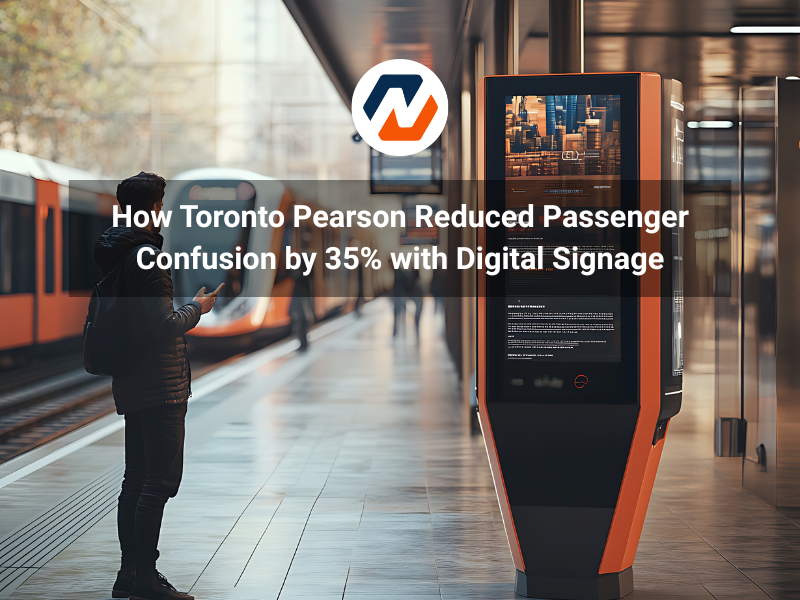admin2025-10-06T18:38:03+00:00
Table of Contents
ToggleIntroduction – Canada’s Busy Transportation Hubs
Toronto Pearson International Airport is Canada’s busiest airport, handling over 45 million passengers annually. Managing passenger flow, safety, and communication is a massive challenge.
In 2024, Pearson implemented a digital signage upgrade, which resulted in a 35% reduction in passenger confusion complaints (Pearson Airport Report, 2024). This case highlights how signage is transforming Canadian transportation.
The Problem – Lost & Frustrated Passengers
- Static boards couldn’t keep up with last-minute flight changes.
- Multilingual passengers lacked clear communication.
- Overcrowded areas created safety risks and confusion.
The Solution – Real-Time Passenger Signage
Pearson adopted a network of digital flight boards, wayfinding kiosks, and safety displays. These systems delivered:
- Live flight status updates
- Multilingual wayfinding assistance
- Emergency alerts in real time
- Advertising space for revenue generation
The Results – Pearson’s KPIs
After 6 months:
- 35% fewer passenger confusion complaints.
- 22% higher satisfaction scores in traveler surveys.
- 18% increase in advertising revenue from digital billboards.
- Faster evacuation times during drills.
Case Study – GO Transit & Vancouver SkyTrain
It’s not just airports — Canadian transit systems are adopting signage too:
- GO Transit (Ontario): Installed real-time train updates, cutting platform delays by 15%.
- Vancouver SkyTrain: Added eco-friendly displays showing carbon savings, improving public engagement.
Additional Benefits of Transportation Signage
- Multilingual displays improve inclusivity.
- Real-time emergency communication improves safety.
- Ad revenue creates new income for transit authorities.
- Wayfinding reduces staff workload answering questions.
2025 Trends in Transportation Signage
-
AI-Powered Predictive Displays
Predicting delays before they occur.
-
Mobile Integration
QR-linked signage delivering updates to phones.
-
Smart City Connectivity
Linking signage with IoT traffic systems.
-
Eco-Sustainability Boards
Displaying green impact and energy savings.
Challenges & Considerations
- Upfront Costs: High for large networks, but offset by ad revenue.
- Accessibility: Must meet ADA/CSA standards for visibility.
- Data Integration: Needs syncing with flight & transit systems.
Conclusion – Transportation Made Smarter
Toronto Pearson’s case shows how digital signage reduces confusion, increases safety, and generates revenue. As Canada modernizes airports and transit hubs, signage will be a cornerstone of smart mobility and passenger experience.

